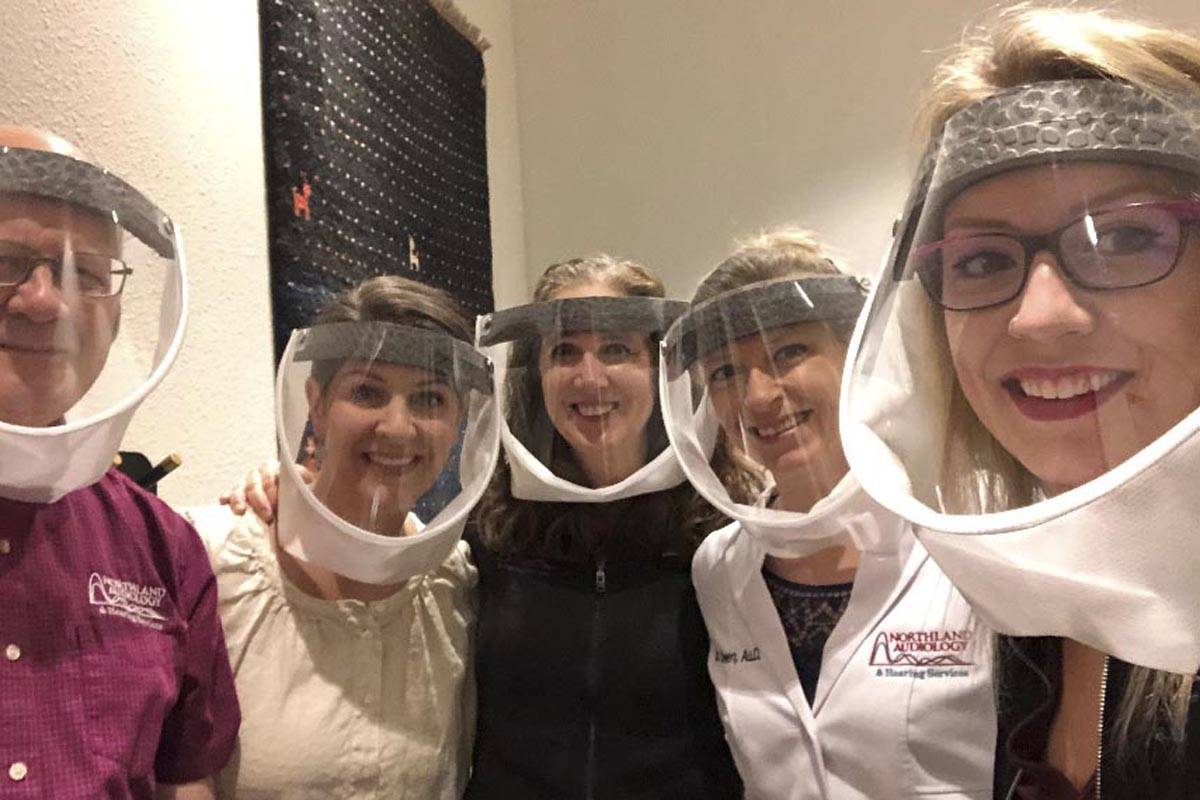A skeptical raised eyebrow, a shy twinkling smile, a snarling flash of teeth. A huge portion of communication is nonverbal.
But what do you do when everyone around you is wearing a mask? Especially if you’re one of the thousands of Americans experiencing hearing loss?
“As soon as you put a mask on, you lose about 10-15 decibels from having that mask on your face,” said Kaia Rongstad, one of the owners of Northland Audiology and Hearing Service. “In communication, people rely on hearing, but they also rely on facial cures.”
A local business helped make sure a key avenue for communication stayed open.
“We’re trying to make things for people that are hearing impaired,” said Hal Daugherty, head of Rapid Response PPE, a company formed at the outset of the coronavirus crisis to help deal with the dearth of equipment for first responders and hospital personnel.
Symptoms of COVID-19 can include fever, cough and breathing trouble. Most people develop only mild symptoms, but some people — usually those with other medical complications — develop more severe or event fatal symptoms.
[What reopening means for business owners]
Regular masks protect from the expulsion or, to a more limited extent, intake of contagions. But they’re less useful for folks that rely, consciously or unconsciously, on facial cues or lip reading to communicate effectively.
“People with hearing loss rely on lip reading and facial cues even if they don’t realize they rely on it. It basically becomes impossible for them to understand.” Rongstad said. “People come to us because they can’t hear. Us communicating to them with a mask on, we knew it wasn’t going to work.”
Rongstad said they had reached out to a company that served masks with a clear portion built in, but that the company had begun to raise prices at the beginning of the epidemic and claimed masks wouldn’t be available till June. She reached out through a friend to Daugherty, and within hours, Rongstad said, Daugherty was working on a prototype.
“When we started, we ere just trying to help our first responders and hospital out of a jam,” Daugherty said. “We got that all done, and we started doing contract work for the state. We got that all done. We’ve morphed from an all-volunteer force to 5 people who make a decent wage to make PPE.”
Daugherty made two versions of the mask; one, closer to a standard mask with a clear plastic area so people who are hard of hearing can see the speaker’s mouth, and one, an evolution on the face shield that’s more comfortable to wear, Daugherty said. With the masks, Rongstad said, Northland was able to reopen safely.
“It’s been way nicer wearing those. Our patients can see our full facial expressions and that’s really good,” Rongstad said. “We’re wearing those for the foreseeable future. We’re finally going to be opening up and we’re doing it as safely as possible.”
Daugherty’s Rapid Response PPE has reoriented from an emergency all-volunteer effort to a more streamlined business, employing best practices for safety and cleanliness, Daugherty said.
“In 30 days, we’ve sold $90,000 of PPE. I just gave it away for the longest time,” Daugherty said. “We have not taken a penny of federal money for give-away programs. We’re going to do it the right way, charge a fair price, and make a good product. Be honest and own your mistakes.”
Rongstad said she put the contacts for Daugherty’s shop online in groups for audiologists across the country, allowing them to reopen as well.
“I spread word around the country,” Rongstad. “A bunch of audiologists from around the country purchased from him.”
• Contact reporter Michael S. Lockett at 757.621.1197 or mlockett@juneauempire.com.

